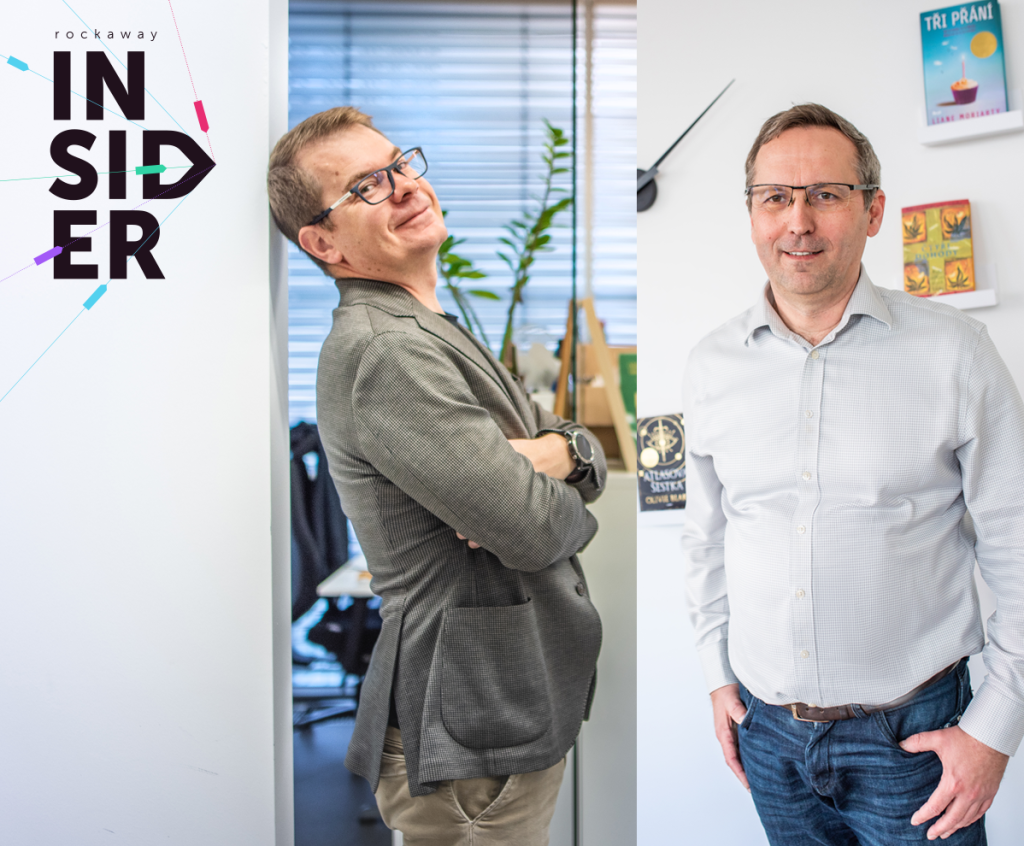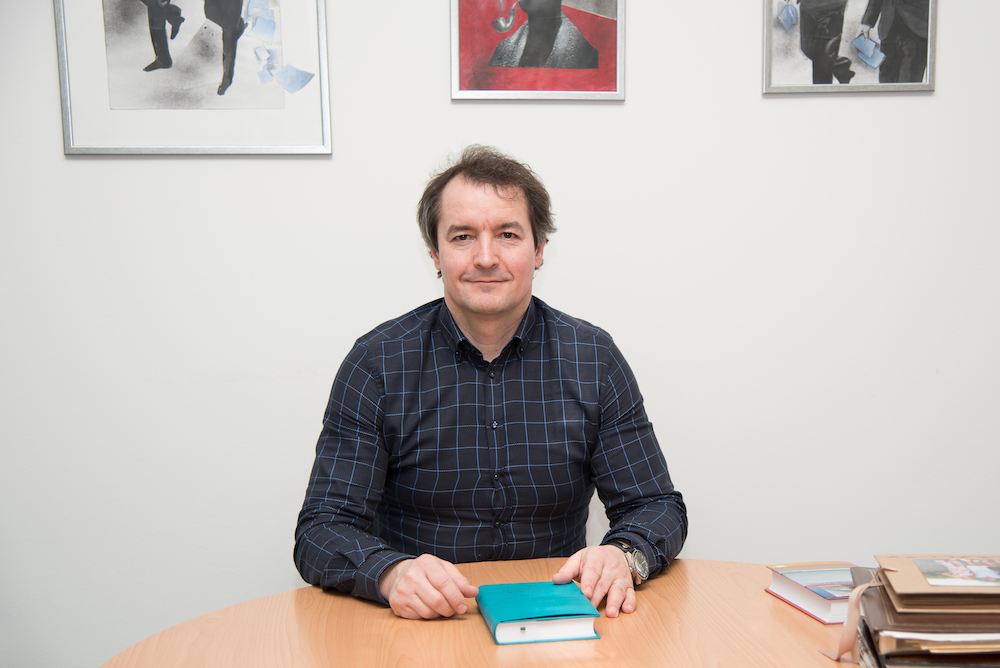All newsInterview with František Mala, CEO of Euromedia Group: Czechs are exceptional when it comes to books
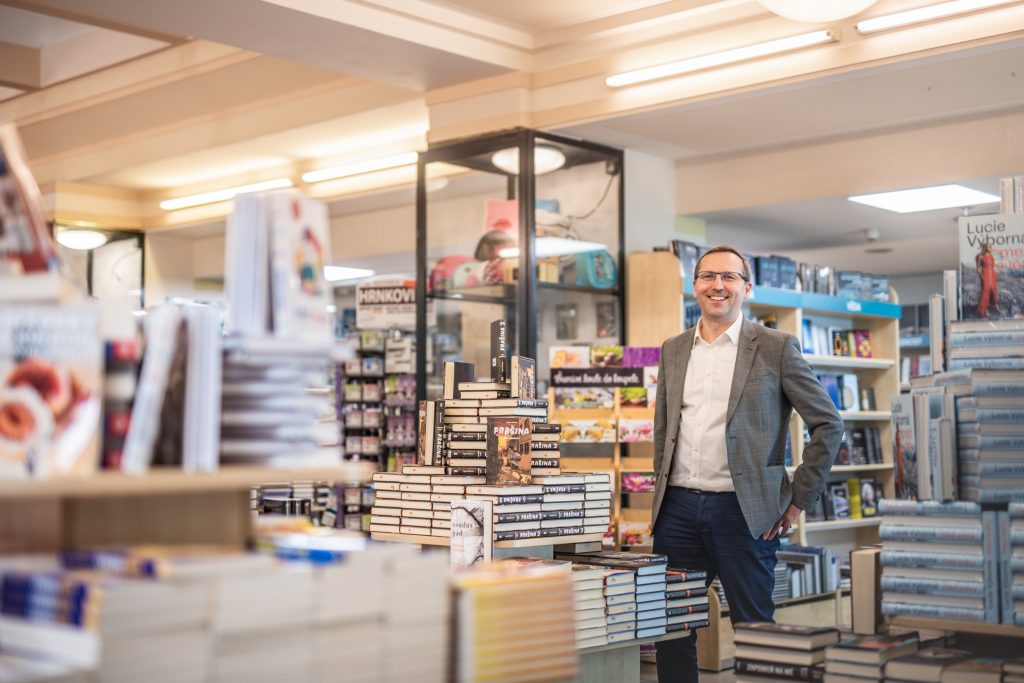
He smiles a lot and often mentions the importance of understanding – both in relation to customers and to his new new role. František Mala, who has replaced Lukáš Novák as the CEO of Euromedia, switched to the book business after two decades in telecommunications, which is perhaps also why he wants to base his new role on communication and connecting people.
Quite simply – who is František Mala?
I’ll start with the professional aspect – for twenty years I worked in telecommunications, more or less for one company. It changed gradually, and so I found multiple opportunities within it. But originally I had graduated from finance and began at PricewaterhouseCoopers doing financial audits, so I’ve got finance in my blood. I was responsible for financial reporting, and later also managed marketing, customer services, and sales.
I’m someone who likes to learn and tackles new things. Basically, this was also one of the reasons why at Deutsche Telekom I gained experience not only in Slovakia, but also moved here to the Czech Republic, where I’ve spent seven years so far, and was in Romania for three years. So I’ve got experience from abroad as well as in various areas of running a company.
How does a manager who has spent his entire career in telecommunications get into the book business?
I worked in the telecommunications industry for twenty years, and I was also always looking for new challenges there too. When Milan Vašina and Robert Chmelař contacted me, we discussed my mix of experience from various positions I’ve held, how things are done at large corporations, and my experience from a sector that is undergoing digitization and involves a lot of innovation. Another factor was probably also the fact that Milan knows me very well and knows that I like books a lot.
Do you see any parallels between telecommunications and the book business?
I think that in every line of business a universal recipe applies, which has two parts – understanding the customer very well, and excellent execution. In terms of understanding the customer, T-Mobile and Euromedia have much in common, because retail is a large part of the business. At any rate, close communication with colleagues at the front lines with very concentrated customer knowledge has long been a great source of inspiration for me. It’s also very important to understand how customers behave on the internet – for example, what they look for or what campaigns they react to. A combination of these sources is key for the formulation of our strategy.
And the execution?
In a large company, the key things are to configure processes properly and, above all, make decisions based on data and facts. Euromedia is the largest player on the market, and because it’s basically still undergoing transformation following the integration of multiple companies, the need to configure processes and decide based on numbers is key for me.
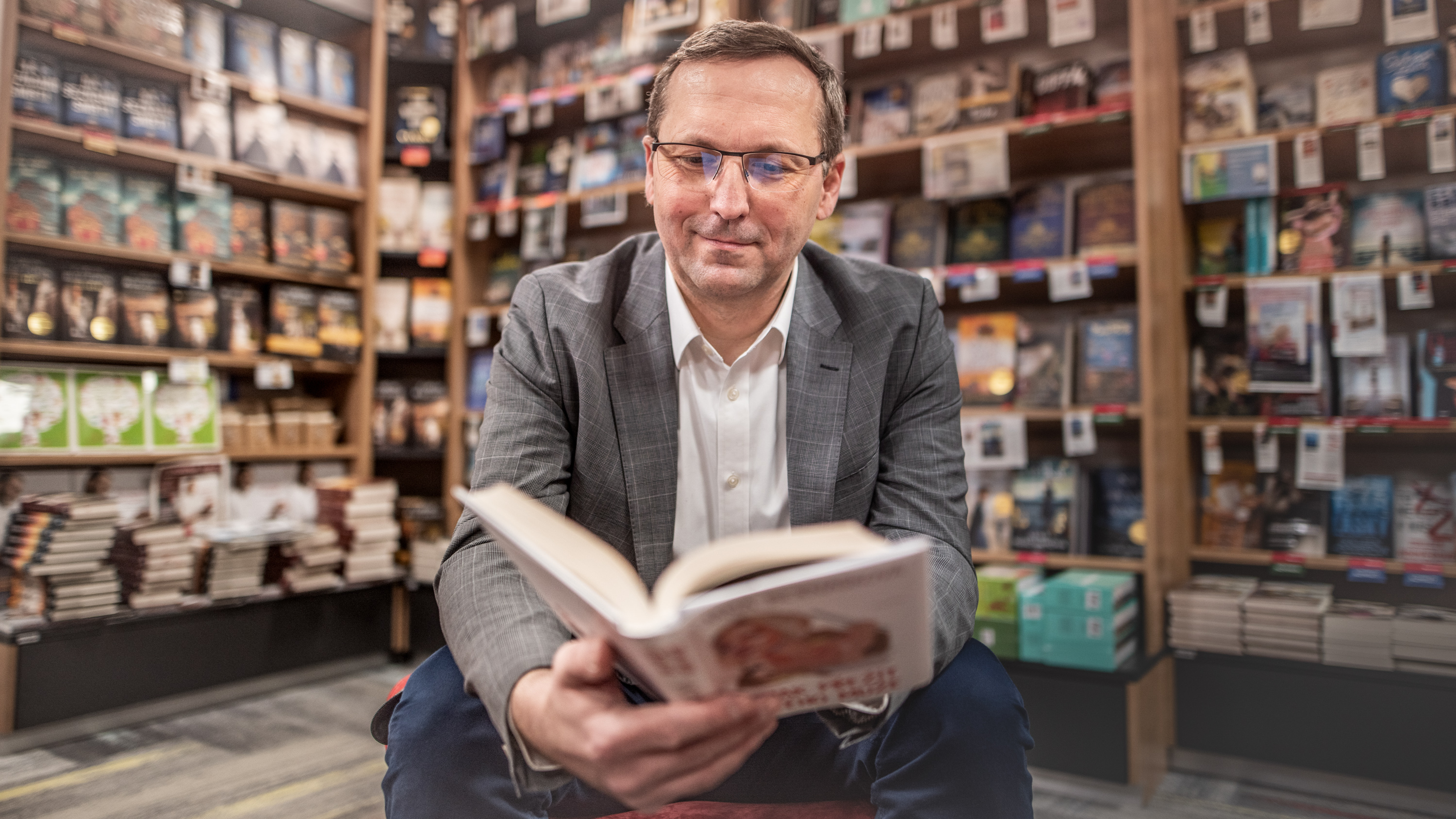
Is there something different about Czech customers in comparison to Slovaks or Romanians?
All you need to do is take the subway – you’ll quickly notice how many people are reading and how many are looking at their phone In short, Czech read much more. In the telecom sector there’s not much difference, digitalization is occurring throughout Europe simultaneously, it’s very dynamic, so I wouldn’t differentiate the customers. But when it comes to books, Czechs are exceptional.
What sort of company are you actually joining? How do you see Euromedia?
I still haven’t spoken with most of my new colleagues, so I don’t want to jump to any premature conclusions. I know that I’m coming to a company that is important to the entire market. It grew quickly and not always organically, and so there’s still a lot of integration work to be done. This vertical integration across the entire books sector was also an important deciding factor for me. There are a quite a few more options when it comes to strategy and priority-setting that if I took over something that was “finished”. I’m looking forward to it.
I know that it’s still too soon to ask about specific things, but do you have a clear direction in which you want to lead Euromedia?
I have some hypotheses, which I will of course confirm in discussions with colleagues. For me it’s important – and always has been – that we formulate our strategy jointly, so it’s not that I’m coming along and telling my colleagues how things should be done. The first few days and weeks will certainly involve intense listening and intense discussions. I’m arriving in a new sector, one for which I have respect, and need to understand the perspective of people who have been working in it longer. One of my hypotheses is that we start with the customer and have to focus more on understanding the customer, both in retail and in on-line marketing. I think that this is where the potential will be the greatest, at least in the beginning. Then we’ll gradually go in-depth.
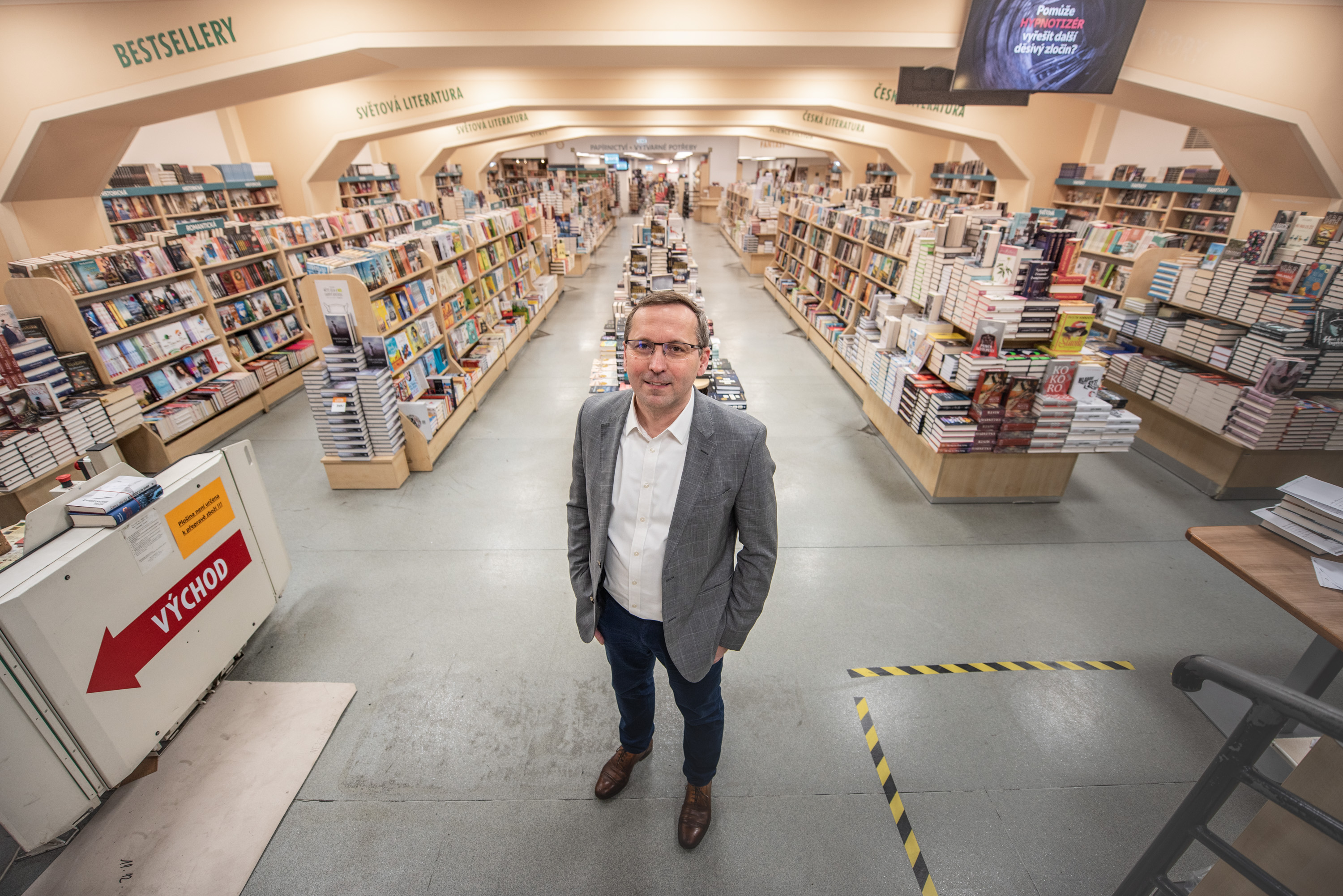
Did the shareholders task you with anything specific?
I wouldn’t call it a task, but focusing on increasing the company’s value is of course important for shareholders. For me, it’s specifically about increasing growth and profitability. And that’s something that can only be achieved through quality products and services for customers. The book market is of course going through a tough time now, but we expect that over the next few months the situation will start to stabilize, so we’ll find opportunity for growth. Our goal will be to grow faster than the rest of the market. The second thing is increasing profitability, which is achieved through good execution, motivated employees, and correctly configuring all parts of the company so they are coordinated and work together.
What are you looking forward to the most now?
I’m looking forward to everything that will take place during those first few days. I like to learn, so now when I’m entering a new environment, I can’t wait to communicate with people, understand their perspective, understand the sector, and together mark out the road ahead.
You talk a lot about understanding and about the fact that you want to learn as much as possible. Aside from listening and discussing, what is your approach?
I’ve been preparing for my new role for weeks now, getting information wherever I can. That’s why, aside from internal data, I’m looking for everything that can be relevant. I’m reading studies, listening to various podcasts, watching what works on customers, and am also looking for inspiration in foreign markets, where there are both players who are doing better and those who are doing worse. For me it’s important to look for best practices from other markets, perhaps even other sectors. For example, one thing that really caught my eye was a study on the development of independent bookstores on the US market that are close to the customer. I think that this is a good source of inspiration in the area of customer experience. A company like ours can find a number of things in this that can be scaled and brought to a substantially larger number of people. This is one of the ways I’m thinking.
Is there some thing that you already like and are thinking about whether you should introduce it and how it could work?
The Czech book market is highly developed and I haven’t found anything ground-breaking that isn’t here yet. And as far as digitalization goes, the Czech Republic is a leader even outside the world of books. It’s more about how we should implement individual tools. Specifically, I am interested in the topic of building communities or for example transformation of retail so that it’s not a bookstore but also some sort of interesting experience, where people will like to spend time and meet up.
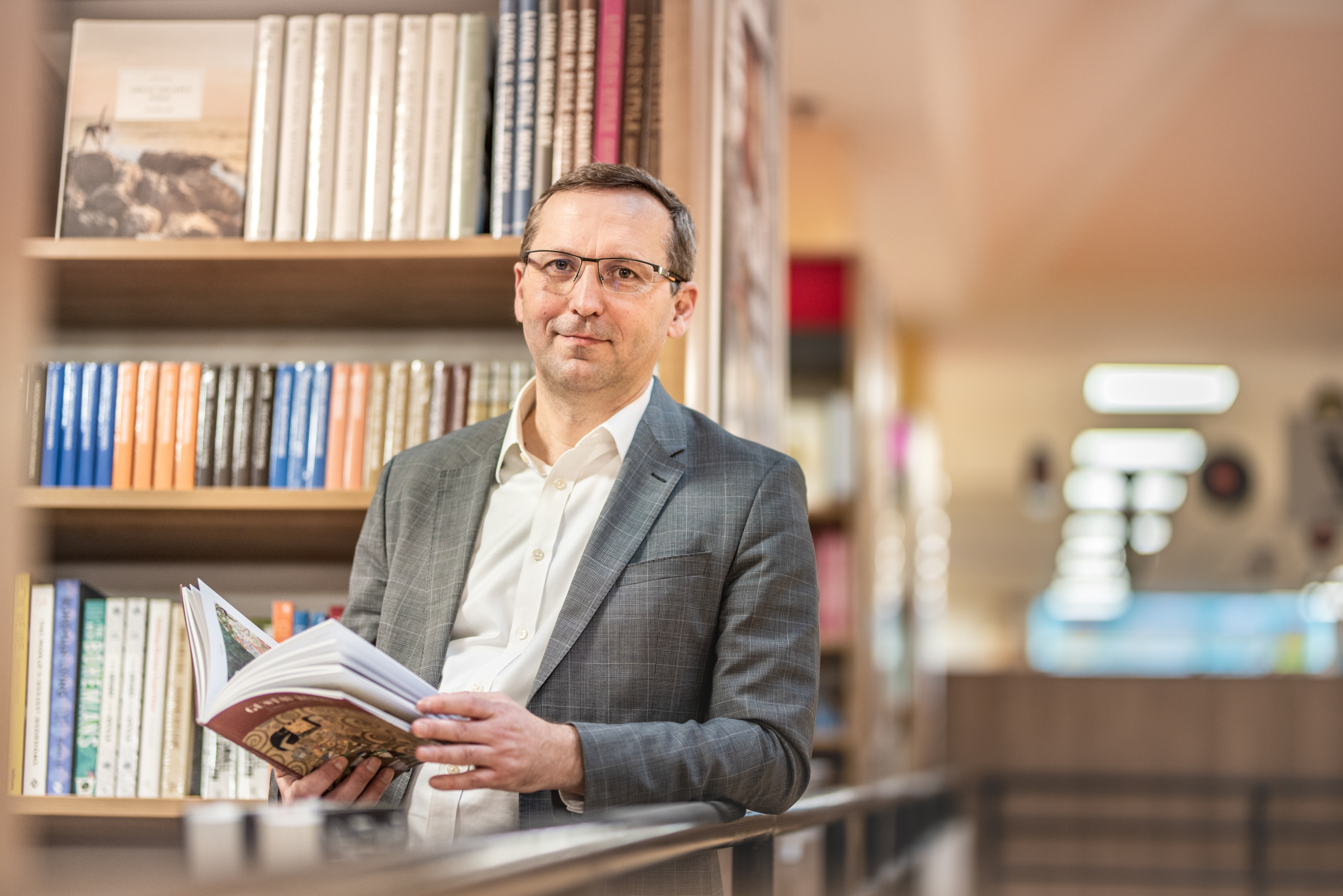
You mentioned digitalization several times. What’s your take on e-books, for example?
Growth of e-books has its limits. Everyone was afraid that they’d overshadow classical books, but that simply didn’t happen. Their growth has stopped on the UK and US markets too. Personally, I get it – when I’ve been working in my home office all day, looking at a monitor, in the evening I want to read a paper book. I think it’s healthier.
What’s your personal relationship with books?
Don’t worry, I really do like to read. At other times I could even have said intensively, but I’m definitely not a bookworm. I’ve got to watch what I say now when it comes to these things, because I’m entering an environment where people really read a lot. And I’ve got respect for them and for the entire sector.
Would you recommend something to read, some favourite book?
I don’t have a list of favourite books. I’m always reading something and one book leads me to another. I’ve just finished reading The Second Derivative of Desire by Tomáš Sedláček, which led me to an older book of his, Economy of Good and Evil. Both will definitely broaden your horizons. In the area of fiction, the last book I read was Crows by Petra Dvořáková. I heard some favourable comments about this book on one podcast, and they were right.




